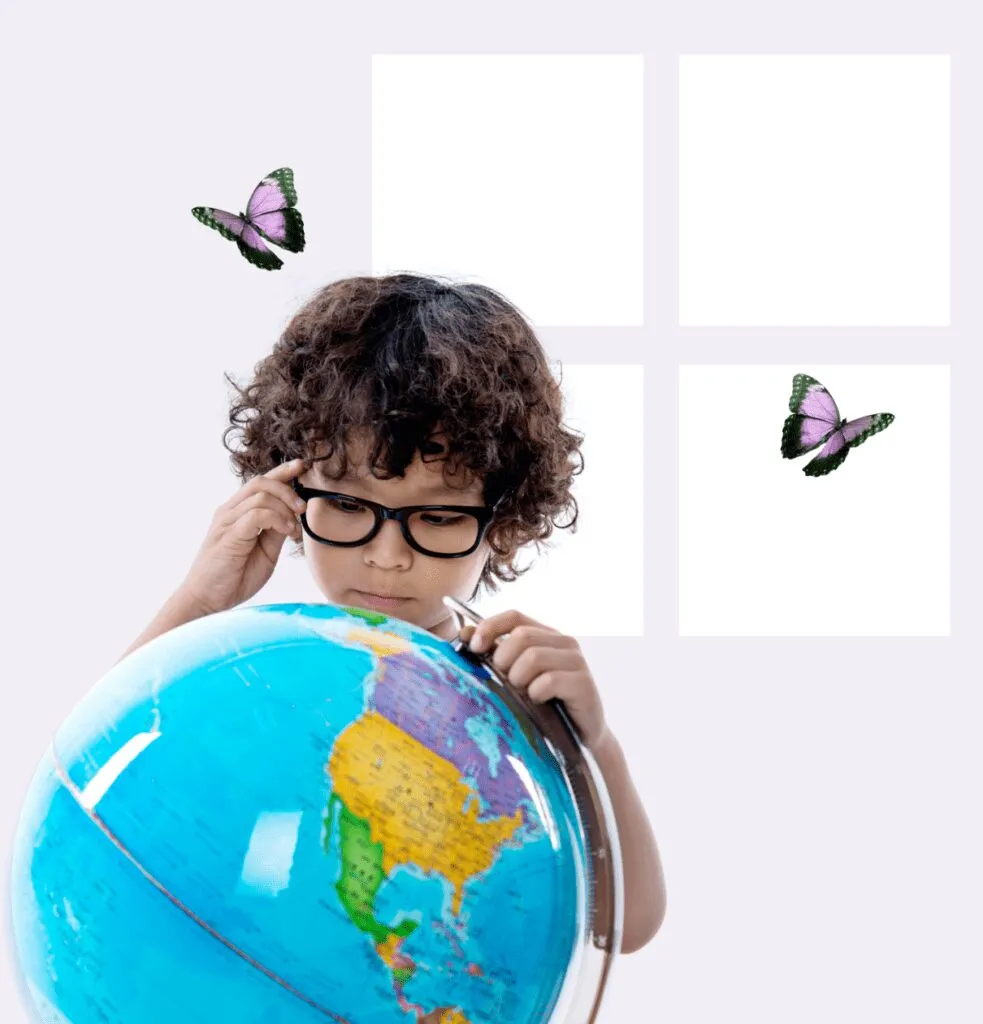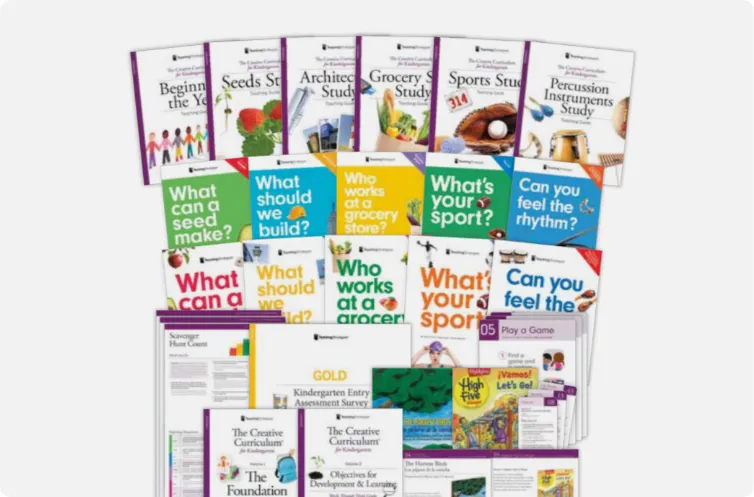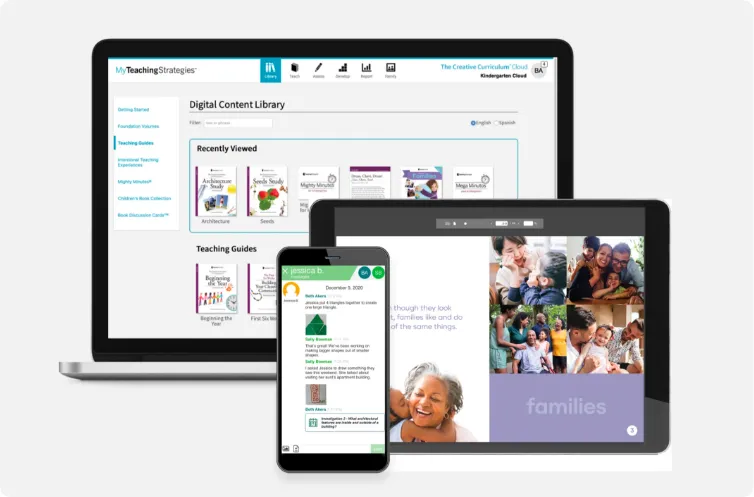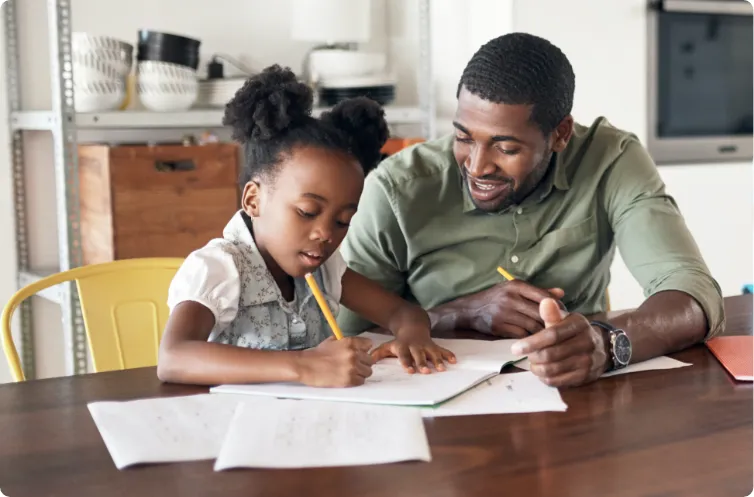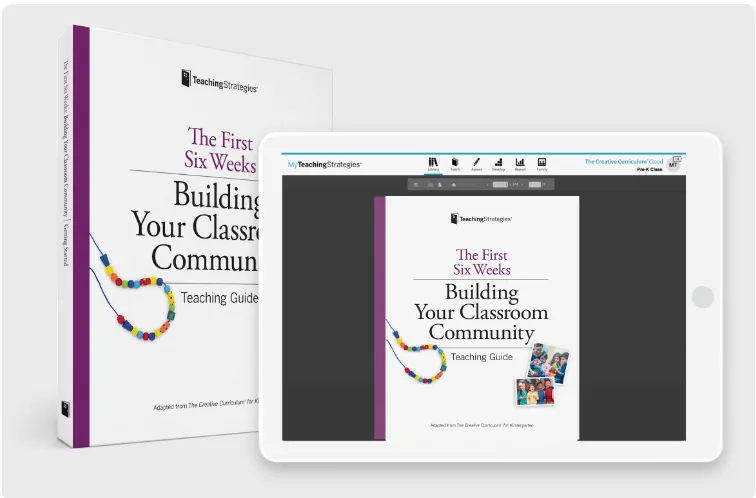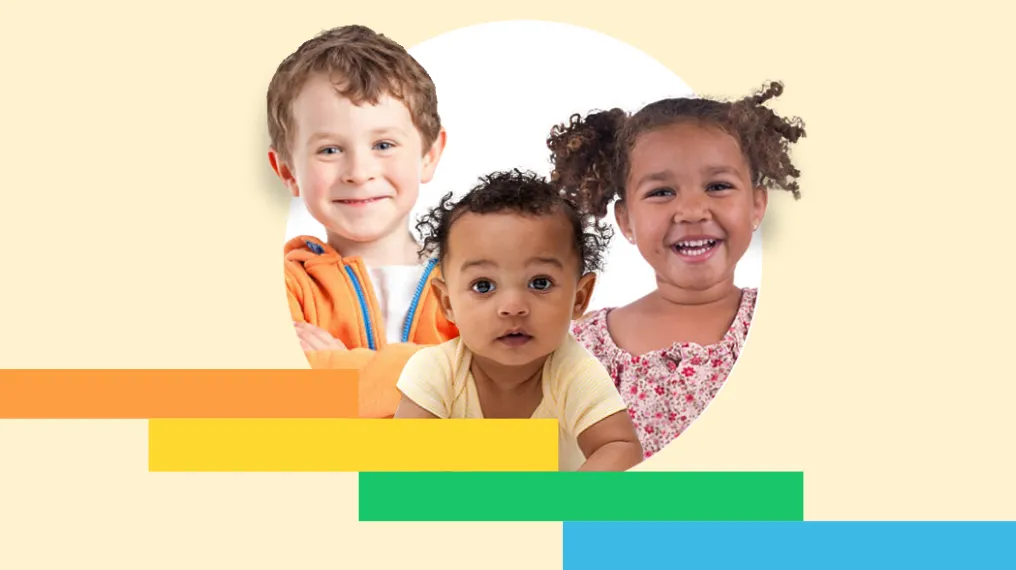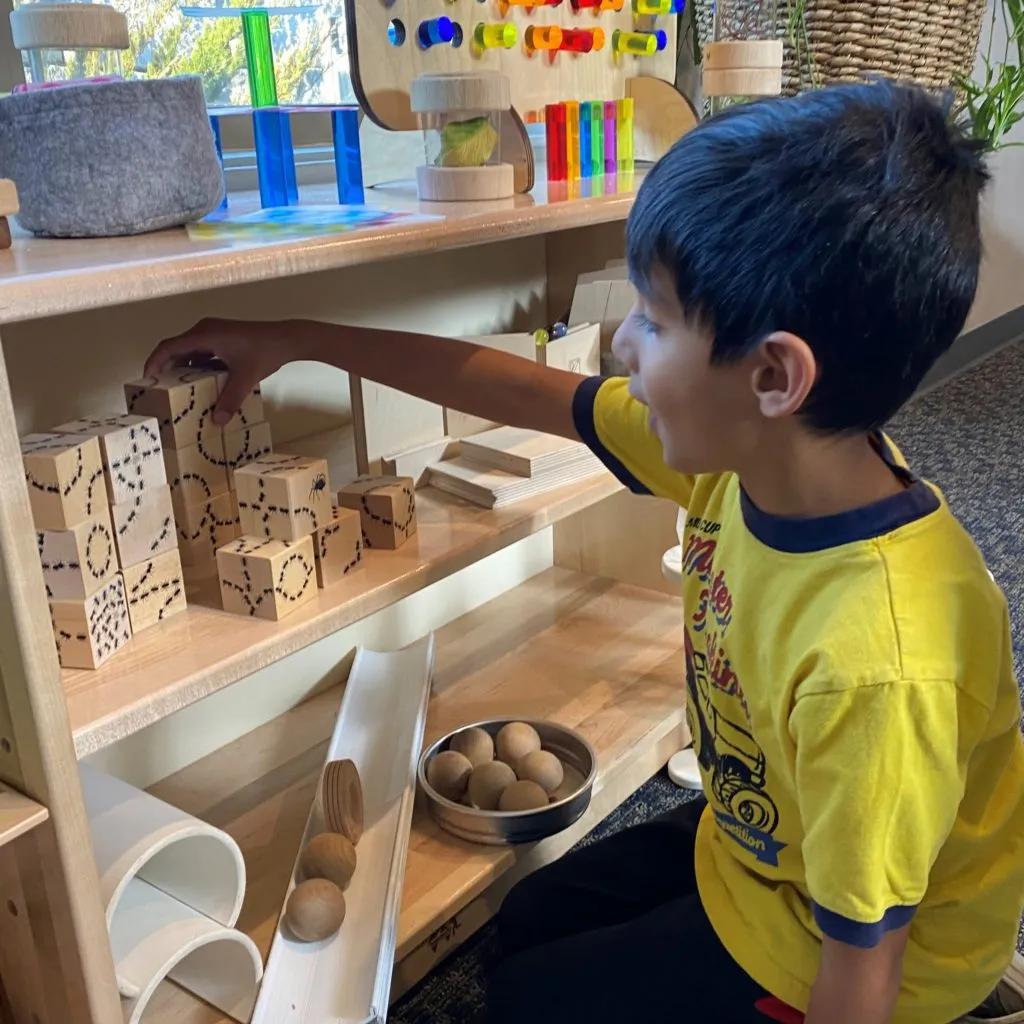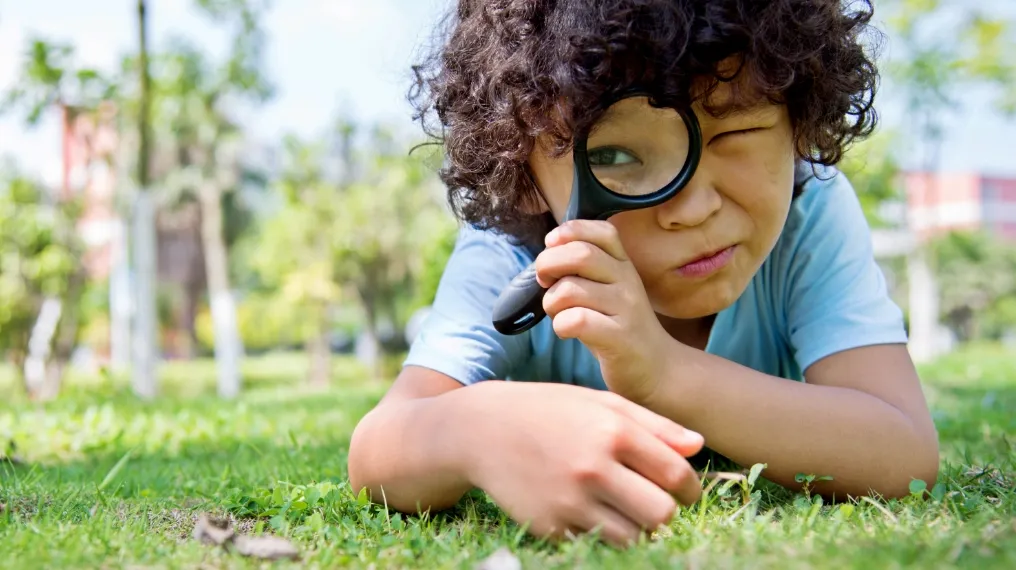Did you know that The Creative Curriculum qualifies for ESSA & ESSER Funding? View ESSA & ESSER Resources
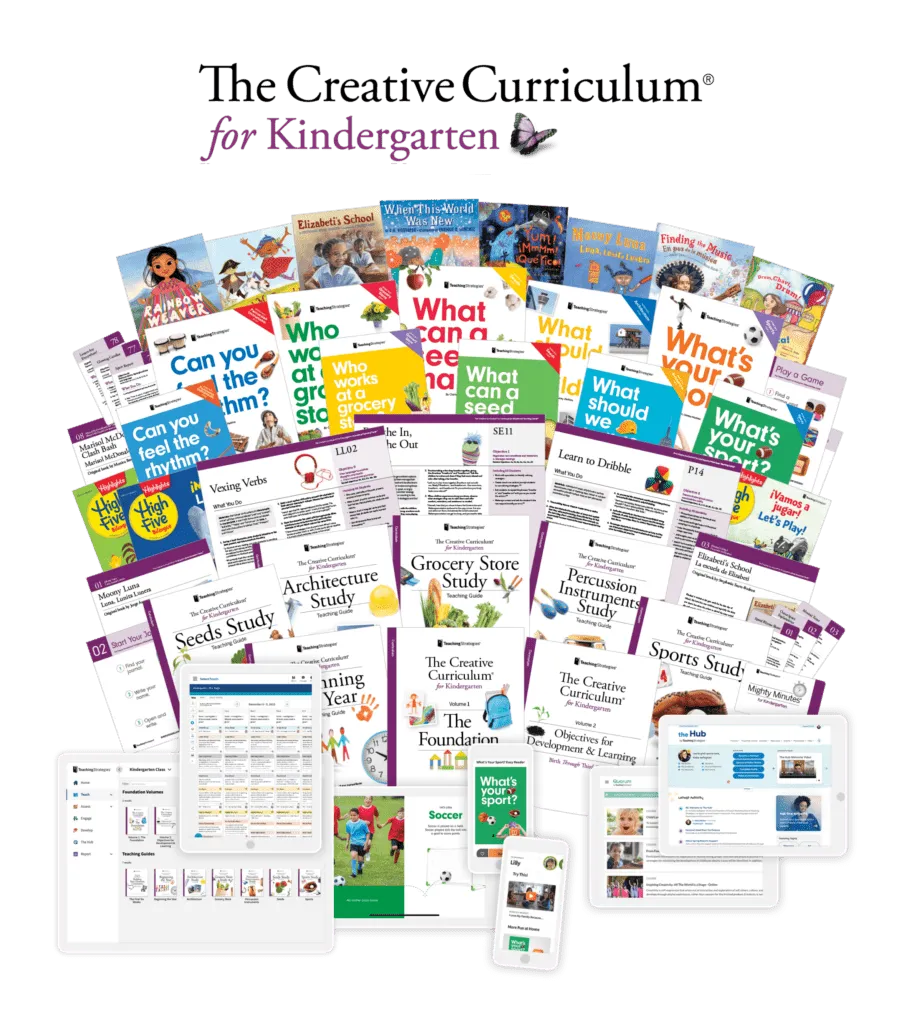
A Kindergarten Curriculum That Inspires a Lifelong Love for Learning
The Creative Curriculum for Kindergarten is a comprehensive, research-based kindergarten curriculum that creates a pathway to a lifelong love for learning. Through project-based investigations of science and social studies topics that integrate literacy and mathematics concepts into everyday instruction, teachers will be able to
- nurture whole-child skill development,
- build a positive classroom community, and
- individualize instruction with the only progressions of learning from birth to age 8
The Foundation
- 2 Foundation Volumes (print and digital)
- Volume 1: The Foundation
- Volume 2: Objectives for Development & Learning, Birth Through Third Grade
Daily Resources
- 6 Teaching Guides (print and digital)
- Beginning the Year
- Architecture
- Grocery
- Percussion Instruments
- Seeds
- Sports
- Intentional Teaching Experiences (201 bilingual, in print and digital)
- Mighty Minutes (100)
- Children’s Book Collection (42 books: 30 fiction; 12 nonfiction, including 10 with teacher and student editions)
- Book Discussion Cards (18)
- Highlights High Five Bilingüe (12 issues in print only)
- Book Conversation Cards (12 in print only)
- 3-Step Instruction Cards (20, print and digital)
- GOLD Kindergarten Entry Assessment Survey
- Teaching Strategies Resource Organizer
Streamline planning, teaching, and family engagement anywhere, anytime, with 24/7 access to the full library of curriculum resources,and two-way communication with families.
With the Teacher Membership, receive detailed guidance, support, and encouragement through a built-in online professional learning community; embedded microlearning; and flexible courses provided in a variety of formats, including all CDA and CCDF training.
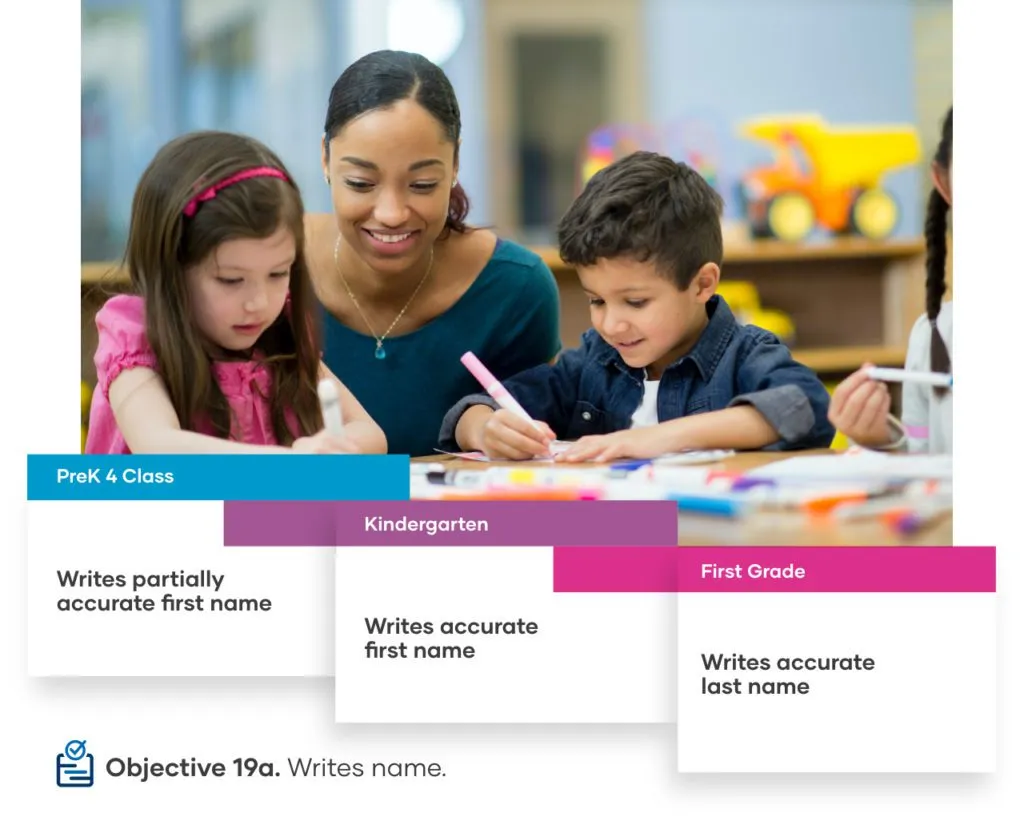
Innovative Approach to Data-Informed Planning
Meet every child at their unique level, celebrate learning through purposeful play that builds upon their natural curiosities, and help every child reach their full potential including the needs of English-language learners, advanced learners, and children with disabilities.
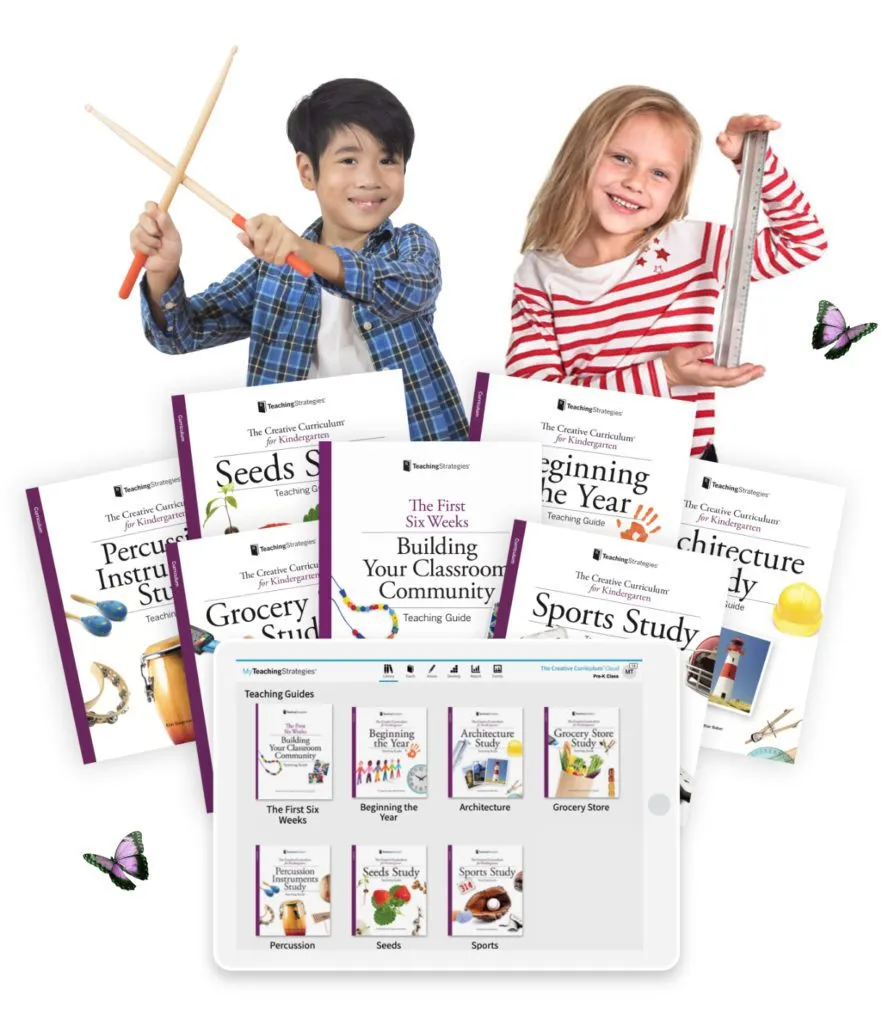
Advance Academic Rigor and Social-Emotional Learning
Research evidence shows that project-based learning engages children in authentic learning experiences, allowing them to observe, connect ideas, solve problems and communicate. Project-based learning allows for academic learning in ALL areas including social–emotional development.
Boost Teacher Confidence and Joy
Equip teachers with flexible professional development in a variety of formats, including embedded microlearning and a built-in online professional learning community with over 81,000 active early childhood educators. With guidance, support, and encouragement for effective implementation, teachers feel confident creating joyful learning experiences for every child.
When Children Investigate, Discover and Play They Learn
The Cloud
Discover smart tools for responsive planning and meaningful engagement with every child and family. Designed to work for you, The Creative Curriculum Cloud streamlines planning, teaching, and engagement so you can focus on the important work with children that no technology could ever replace.
Cultivate an Integrated, Whole-Child Approach
Our studies allow children to build skills in science, social studies, math and literacy and allow them to engage in learning that meets their physiological, emotional and intellectual needs. Use our daily resources or incorporate your own resources throughout your day with our powerful planning tool.
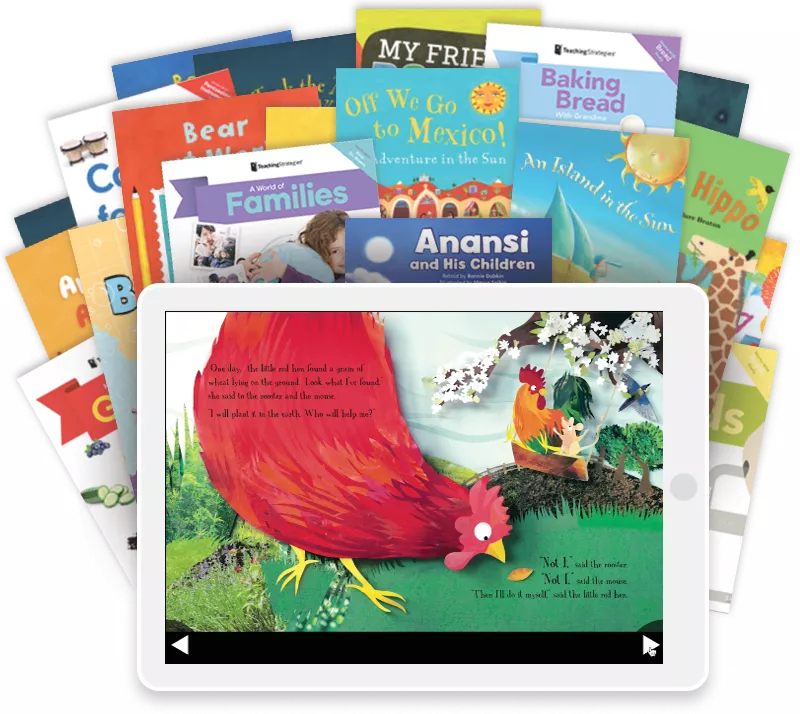
Focus on Language and Literacy Skills
Read aloud using our children’s book collection and Digital Children’s Library and promote language and literacy skills for kindergarteners. The books include the key tenants of a high-quality literature program—a wide range of genres that explore life in other cultures, celebrate diversity, spark curiosity, and inspire children’s imaginations.
Read Aloud Examples
Harvesting a Rainbow Garden | A World of Families
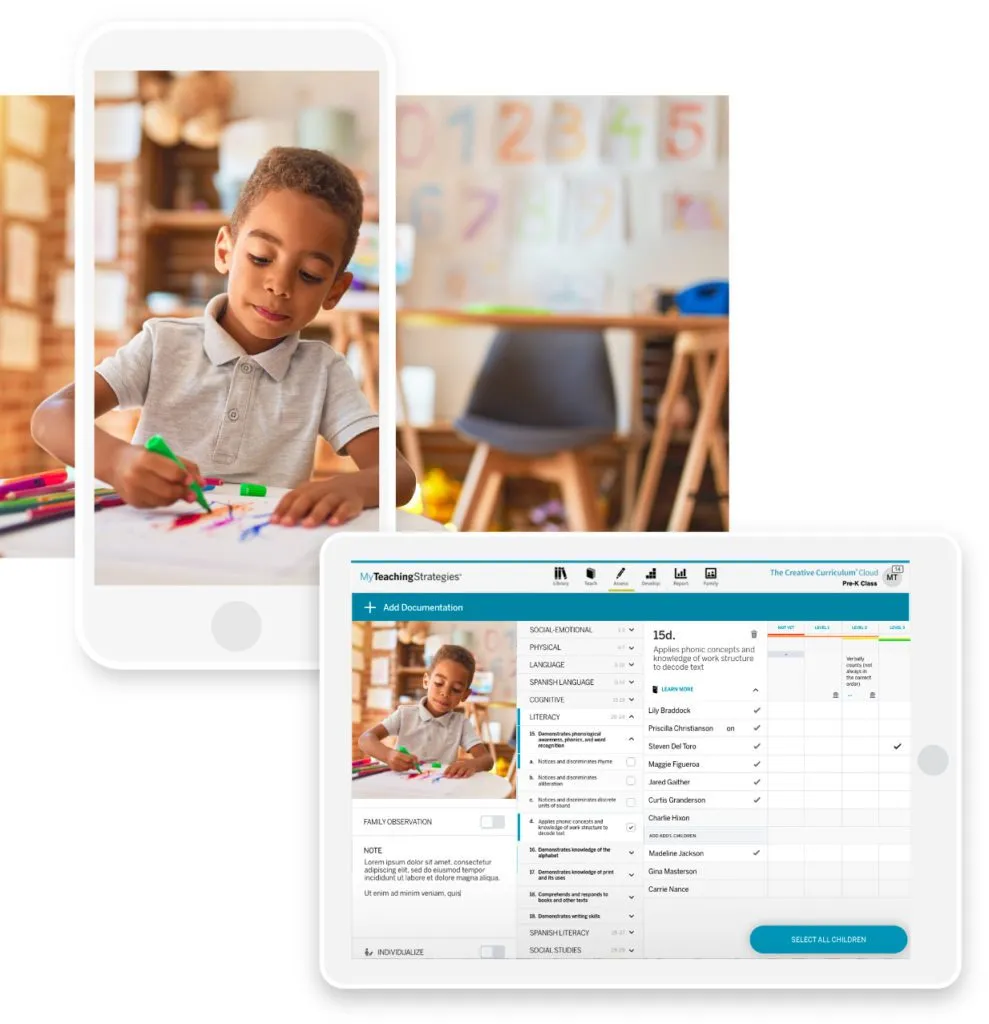
Daily Data-Driven Instruction
Using a data-driven approach to instruction has never been easier and more effective starting with the first checkpoint survey to easily assess their readiness. Easily capture, organize and store notes, photos, videos and digital samples of children’s work in the moment. Meet the needs of all children with ease by adding GOLD formative assessment to The Creative Curriculum for Kindergarten.
The Creative Curriculum for Kindergarten incorporates play through various activities, increasing the engagement of our young students. It’s easy to use and complements existing curriculum we already have in the classroom.
Mary H.
Des Moines, WA
More Reasons to Love The Creative Curriculum for Kindergarten
Aligned to Early Learning Standards
Aligned to early learning guidelines in each state, so you can demonstrate that your program is meeting all requirements.
Individualized Learning Experiences for All Kindergarteners
Ensure concepts and skills are introduced and reinforced in a logical, thoughtful, sequential, and coherent order.
The First Data Collection Made Easy
A Kindergarten Entry Assessment Survey helps you save time collecting assessment information during the first checkpoint of the kindergarten school year.
Intentionally Foster a Positive Classroom Community
Beginning kindergarten is a big step for children. Allow children to get to know you and one another, what to expect at school with resources for the first few weeks.
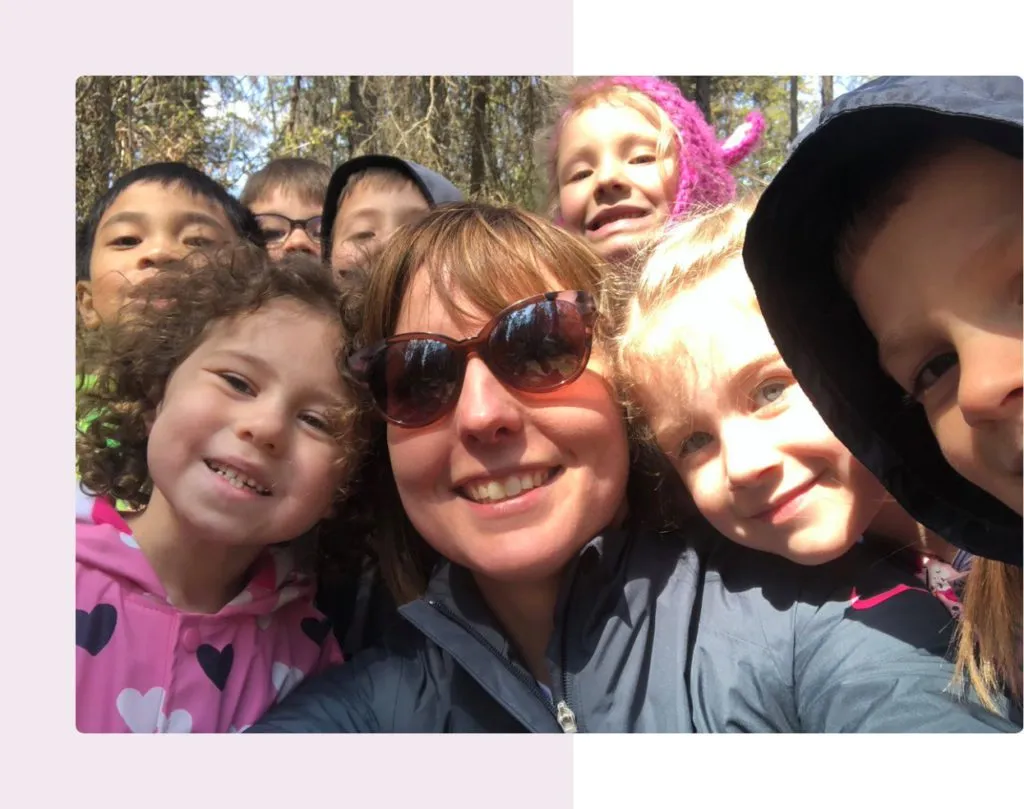
Voices from the Field: Our Experience Developing the Whole Child
Suzy Potts, Coordinator of Early Learning at Red Deer Catholic Regional Schools, shares her own experience of introducing a whole-child approach in kindergarten.
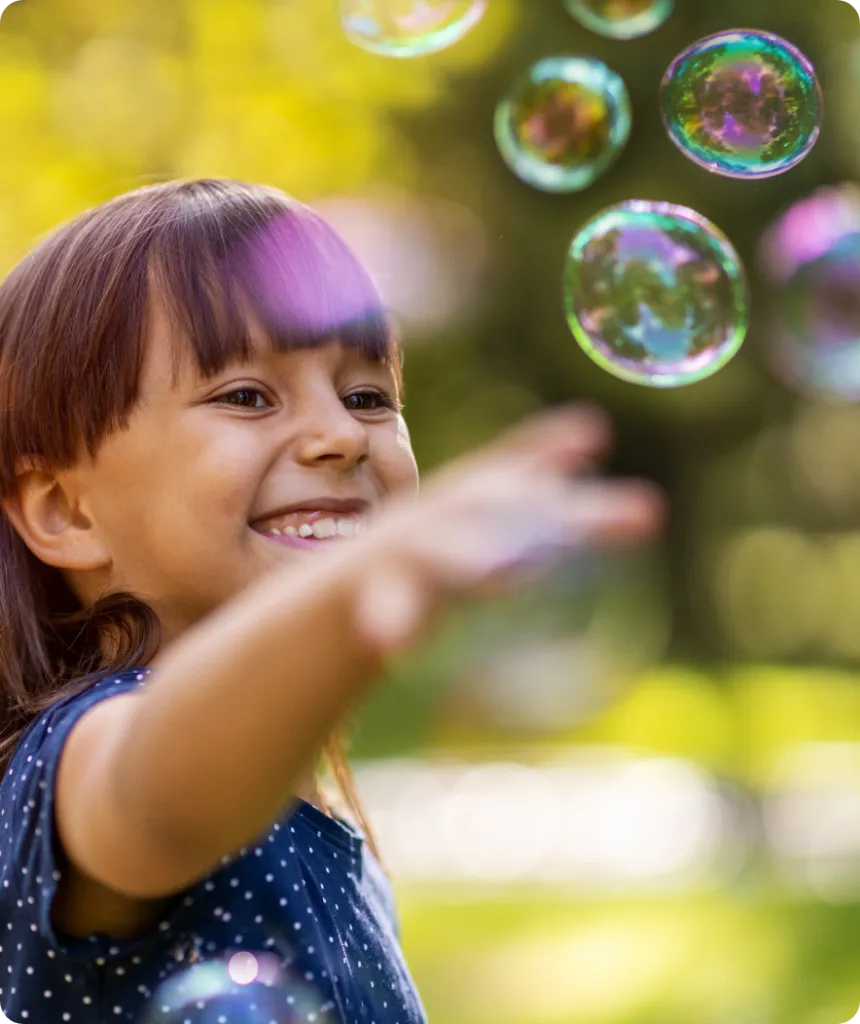
Open a World of Exploration, Discovery and Possibility
Children develop a lifelong love of learning when they are supported in all areas of development and learning with The Creative Curriculum for Kindergarten.
